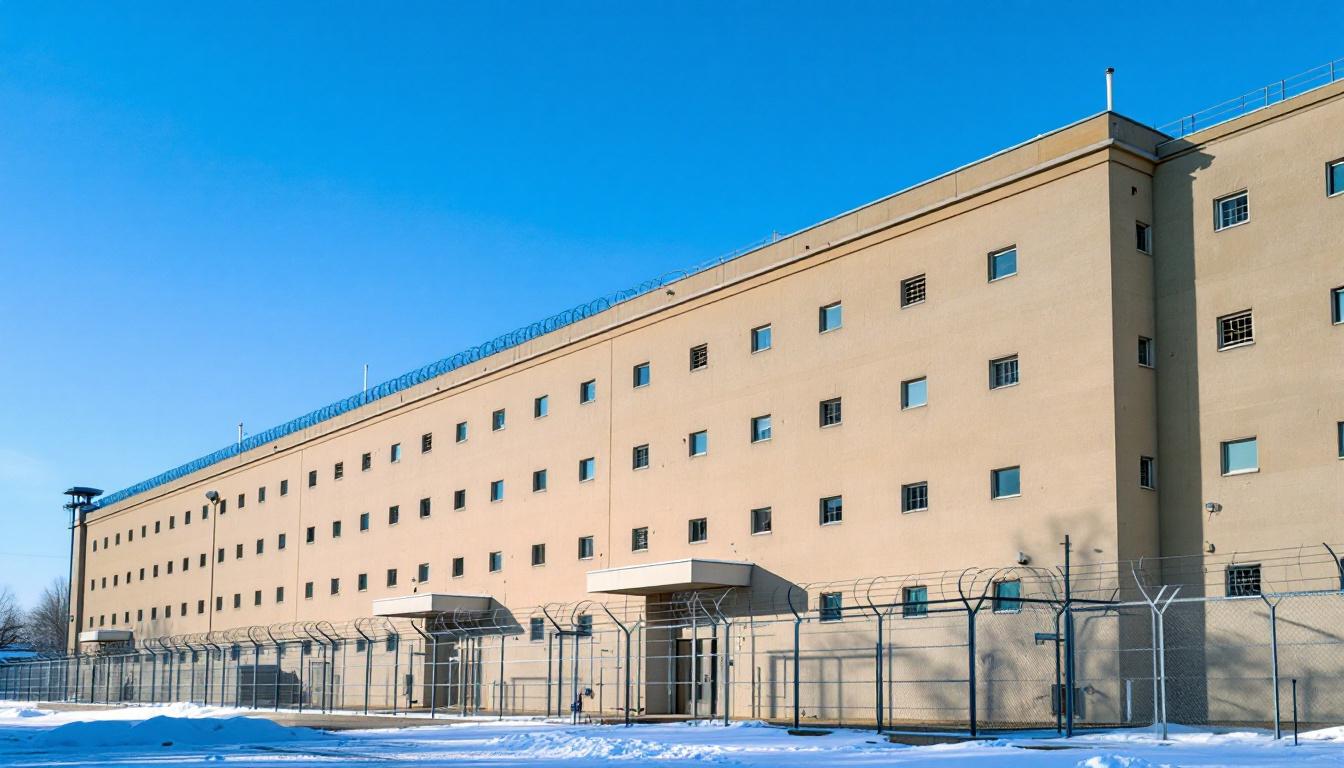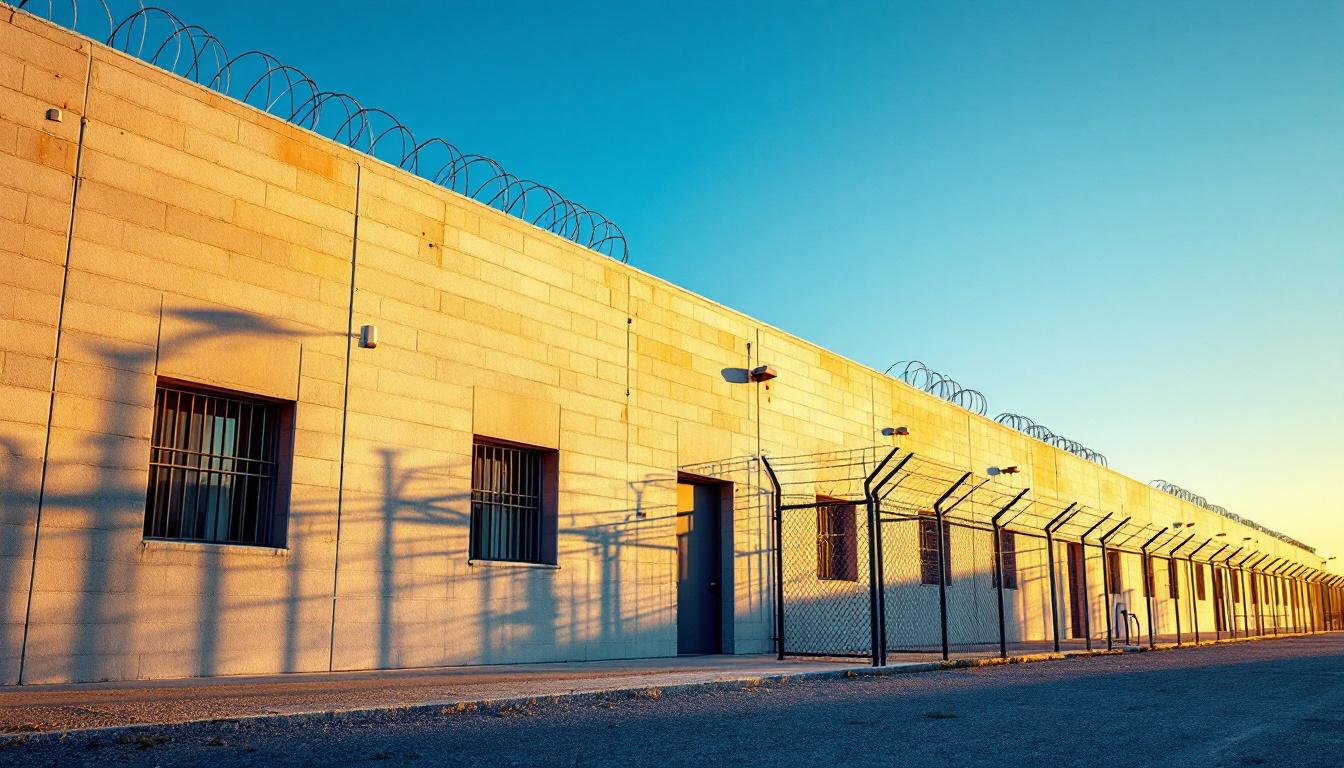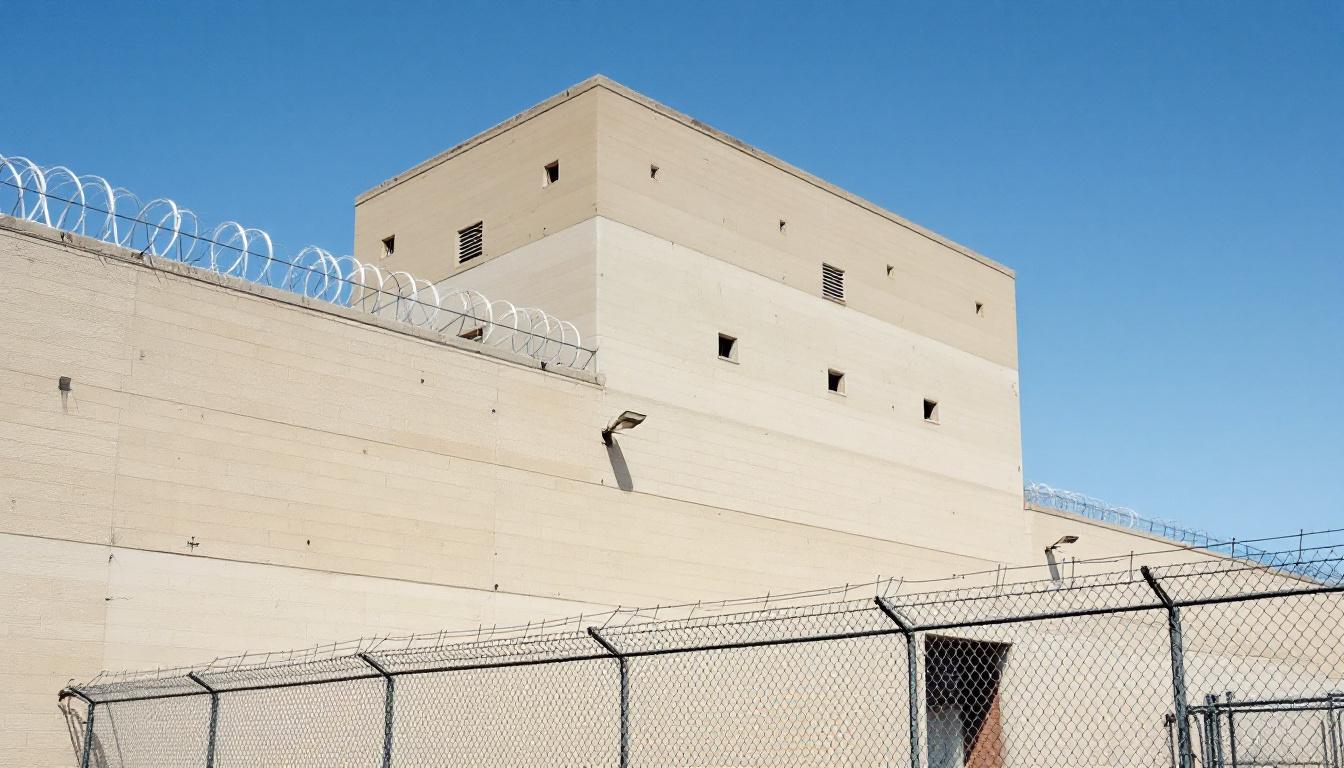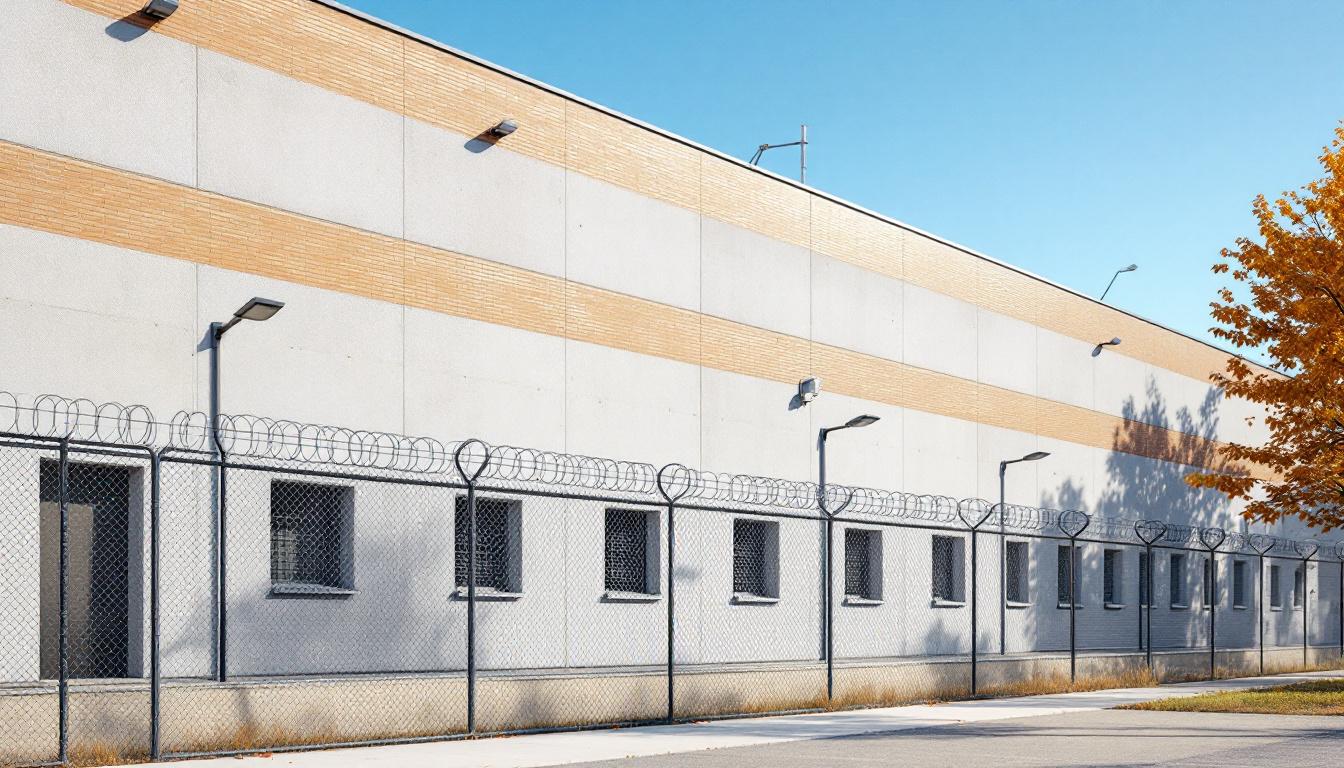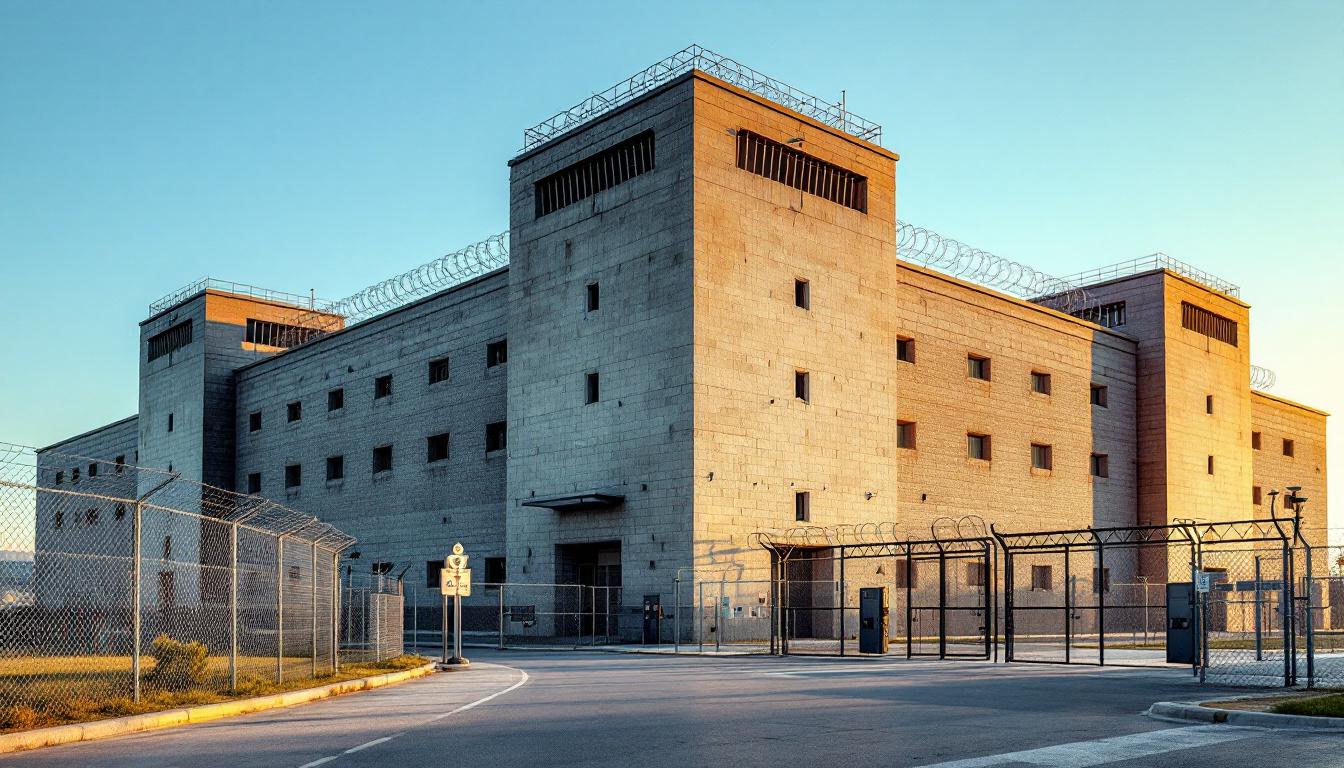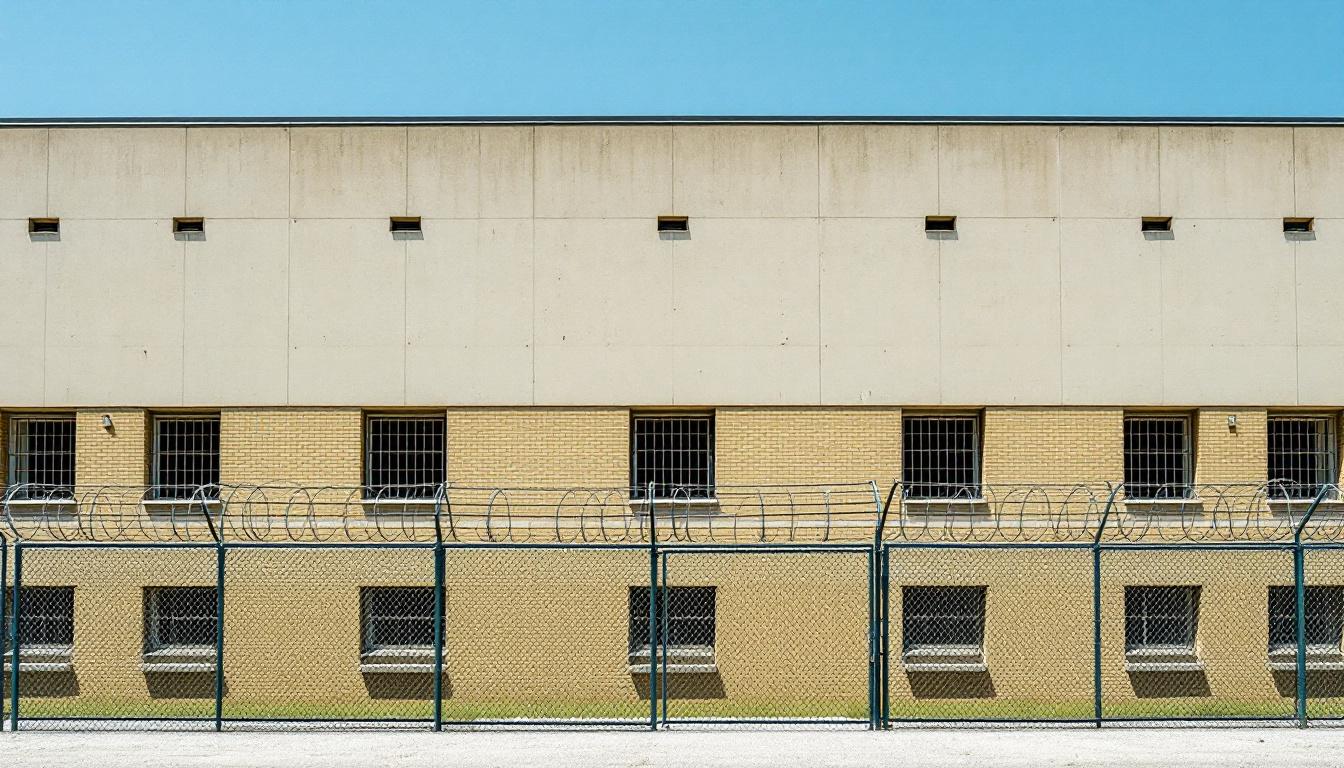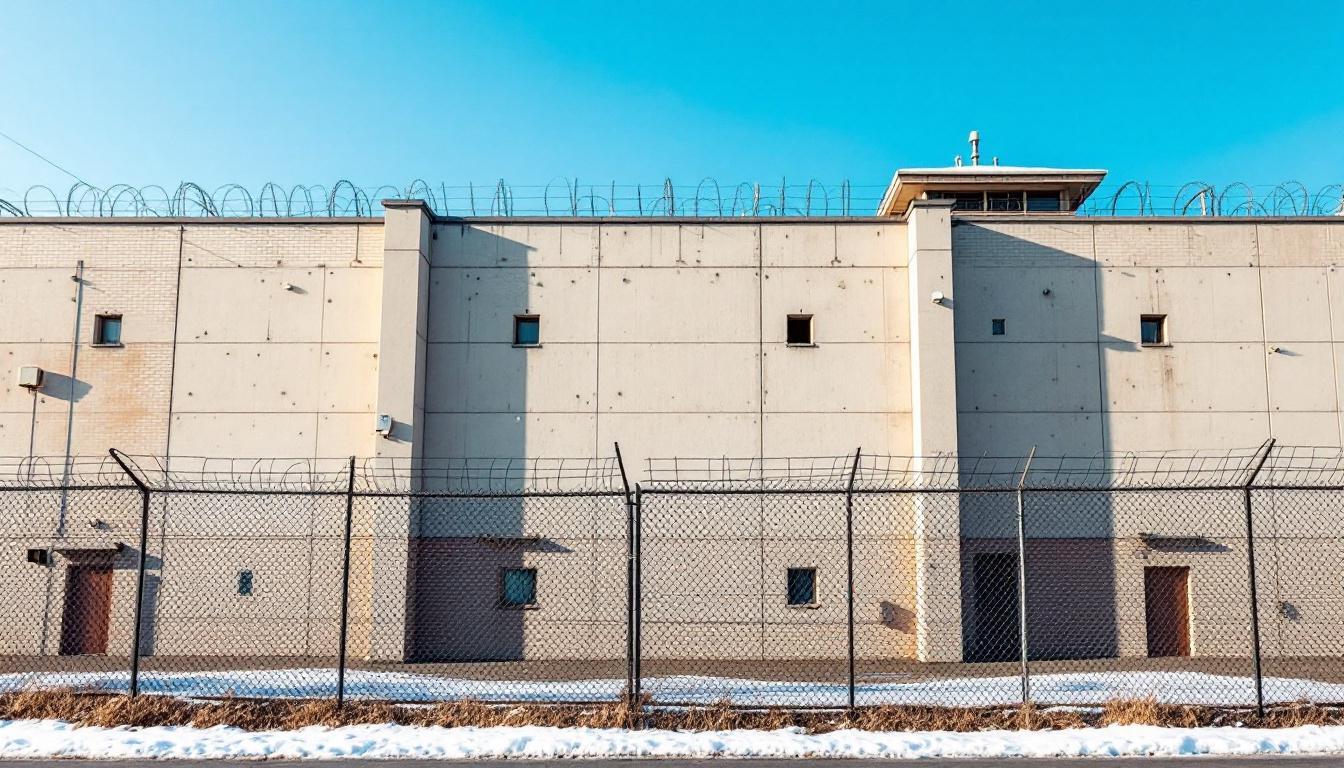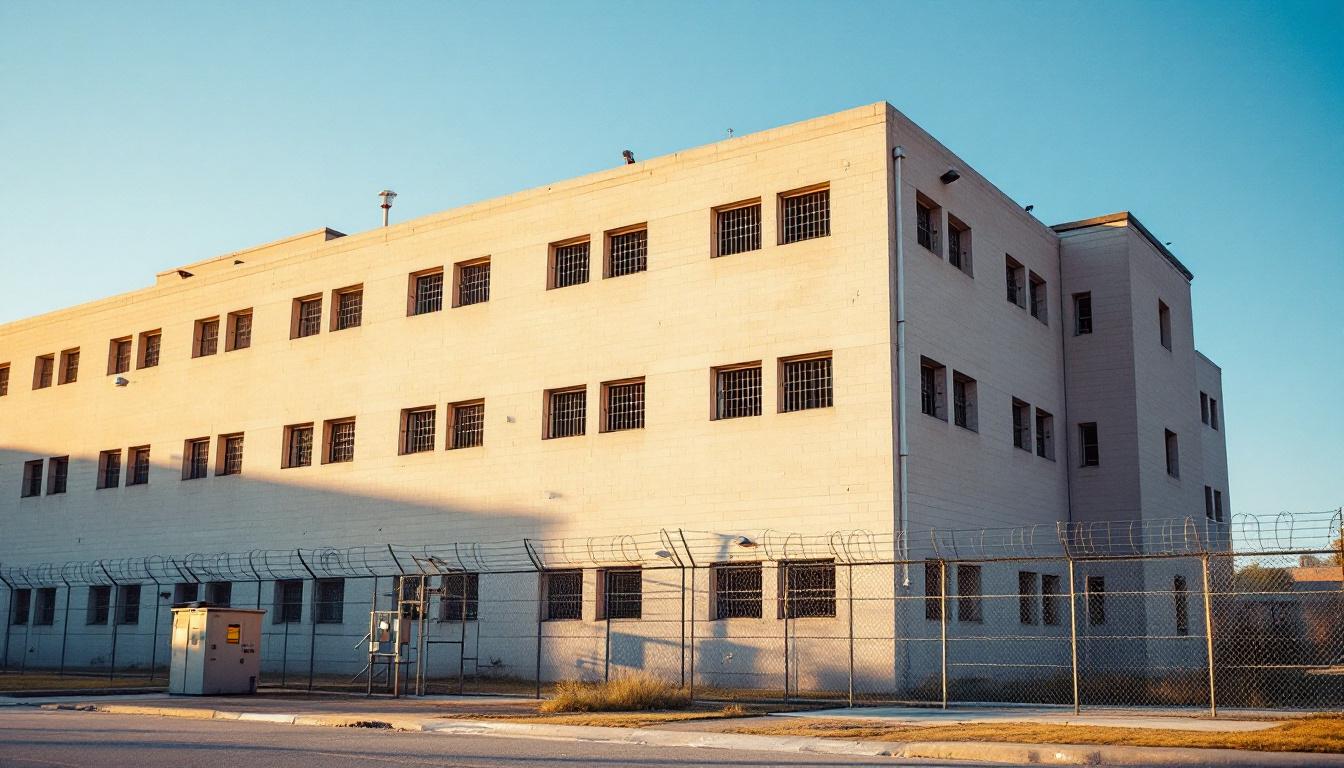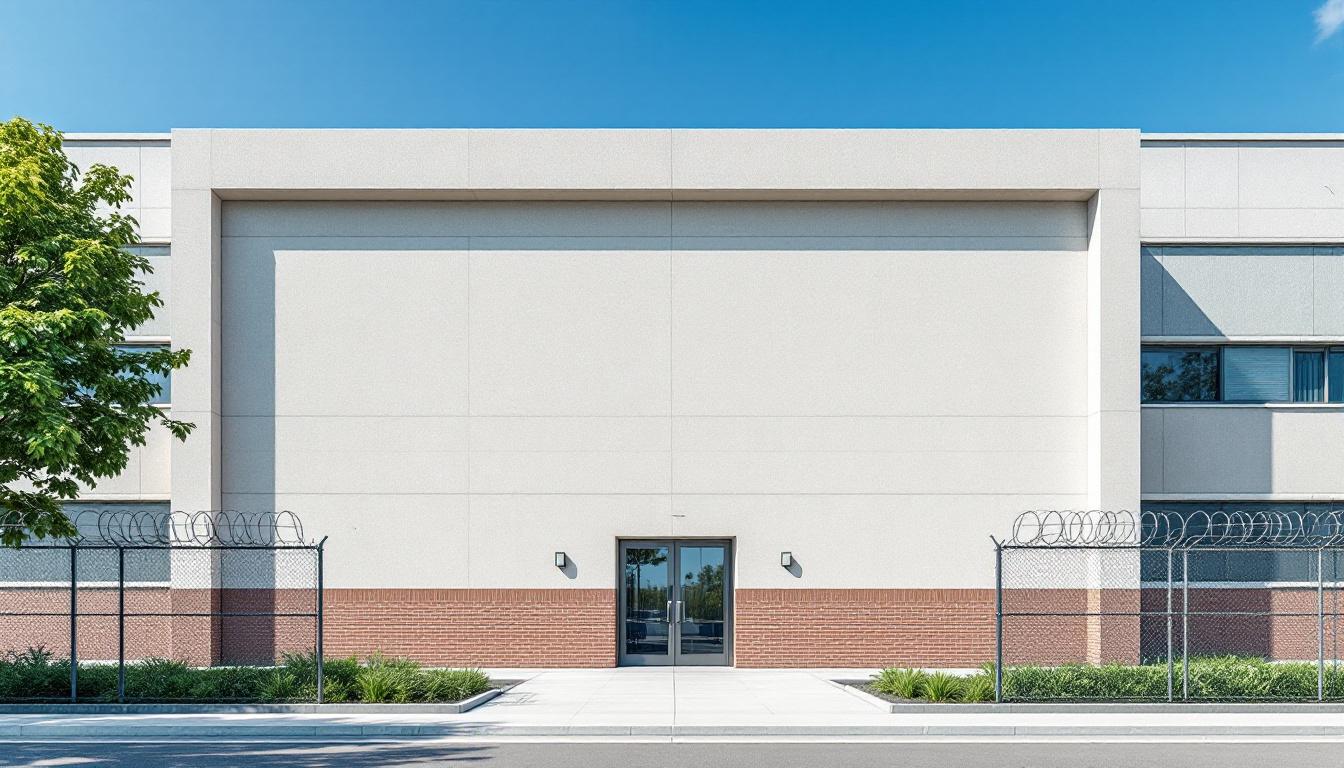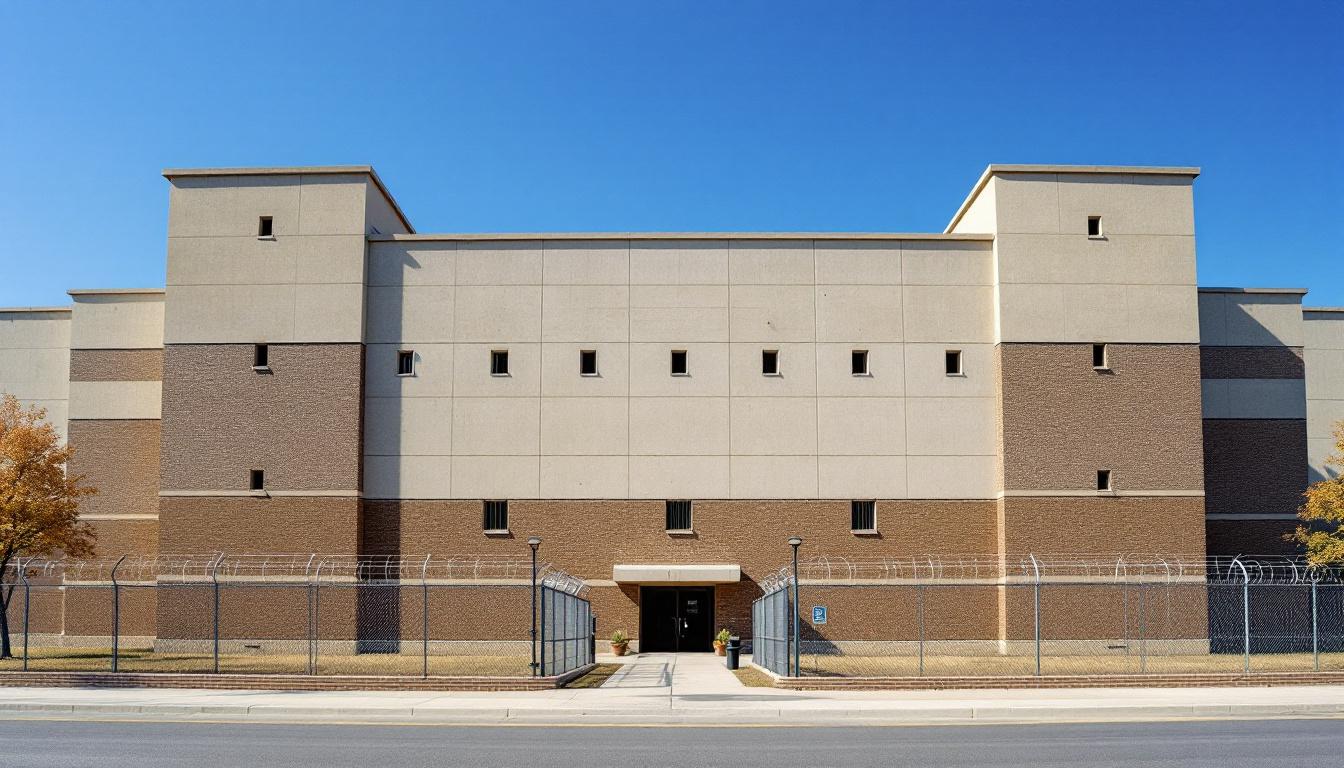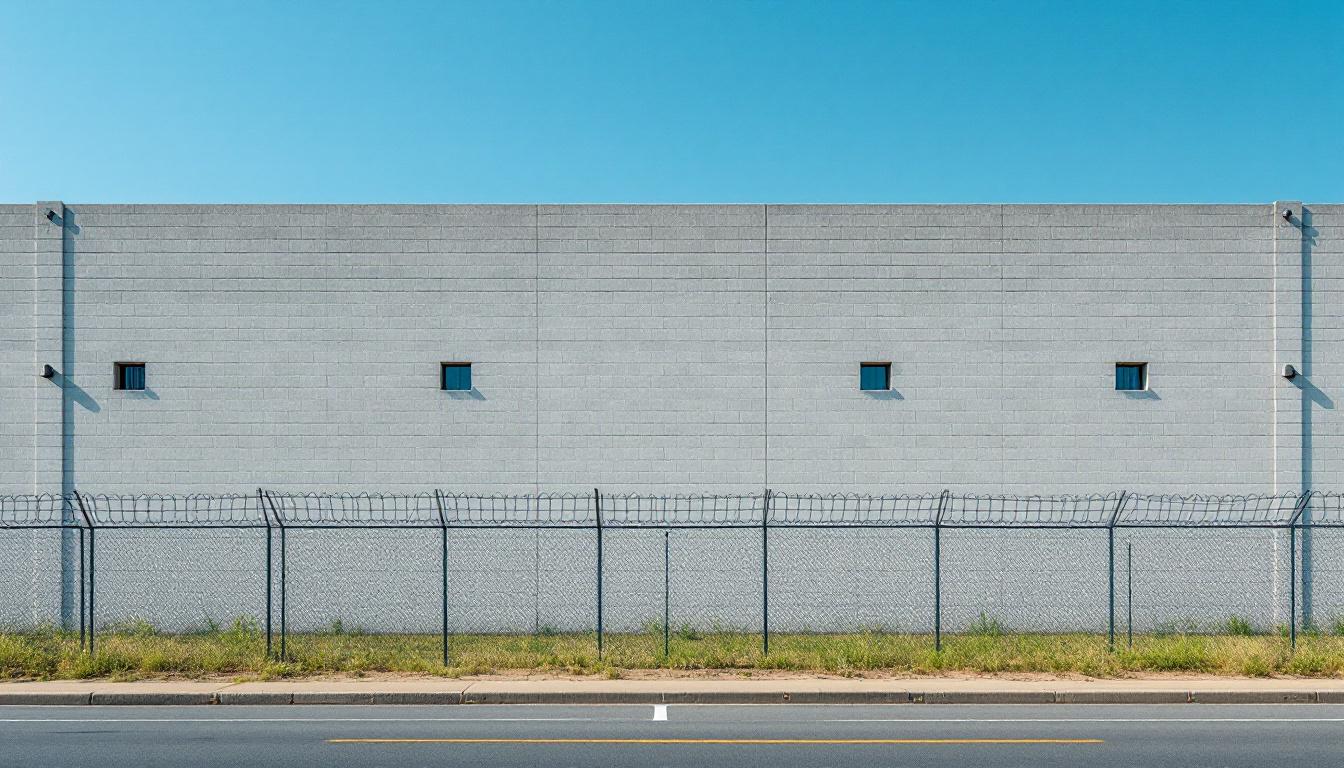
Quick Navigation
How to contact an inmate at Bainbridge Probation Substance Abuse Center
This comprehensive guide will walk you through how to connect with an inmate at Bainbridge Probation Substance Abuse Center. Follow the steps below to find an inmate and send letters and photos:
- Search for the inmate using our search tool below
- Create your account or log in to Penmate
- Write your message (up to 6,000 characters)
- Send instantly - inmates receive printed copies daily
Find an Inmate
Search for an inmate to start communicating today
Tip: You can search by first name, last name, or inmate ID number
To contact a person at Bainbridge Probation Substance Abuse Center start by searching for the person on the facility website. Perform a search by following these steps:
- Step 1: Enter their first name and last name into the search form and click "Search"
- Step 2: Locate their inmate record
- Step 3: Write down their Inmate ID and any housing information provided
Important! Be sure to enter the person's full name. Nicknames should not be used.
How to Send Messages to Inmates

You can use your phone or computer to send emails, letters, and photos to an inmate. Messages are sent electronically to inmate tablets or kiosks at the facility. If you would like to send a message, start by searching for an inmate at Bainbridge Probation Substance Abuse Center.
Sending Photos and Postcards

A great way to send love and support to a loved one at Bainbridge Probation Substance Abuse Center is to send photos and postcards. It only takes a few minutes to send photos from your phone and it makes a huge difference. You can also mail postcards with words of support and inspiration, or design your own postcard for special moments like birthdays and holidays.
Important! Be sure not to send any explicit photos or they may not be approved by the facility. You can also use a photo printing app like Penmate to make sure your photos are printed at the correct size (4x6 or 3x5) and are mailed according to the rules and regulations of Bainbridge Probation Substance Abuse Center.
Frequently asked questions about Bainbridge Probation Substance Abuse Center
-
How long does it take to deliver a message?
If you're sending an email message your letter is usually delivered within 24-48 hours. For messages sent via mail you should expect delivery within 3-7 days. All messages will need be approved by Bainbridge Probation Substance Abuse Center.
-
How much does it cost to send a message to Bainbridge Probation Substance Abuse Center?
You can send a message free using your phone or mail a message via USPS for the price of a $0.60 stamp and envelope. You can also purchase credits or e-stamps from services starting at $1.99.
-
What services can I use to contact an inmate at Bainbridge Probation Substance Abuse Center?
Penmate
You can use Penmate to send letters and photos to an inmate from your phone. It's an easy way to stay in touch during your loved one's incarceration. Use the inmate locator to find an inmate's location and contact information, then you can send messages within a few minutes.
Securus messaging
Securus may be another option for communicating with an inmate at Bainbridge Probation Substance Abuse Center. You can create a friends and family account and purchase credits to send messages. All messages will be reviewed and must be approved by the facility.
JPay
Some county jails and state prisons may support sending messages with JPay. You must register an account with the system, find your loved one, and purchase stamps to send messages. For some locations you can also attach photos.
Smart Jail Mail
You may also check if Smart Jail Mail is available at Bainbridge Probation Substance Abuse Center. Smart Jail Mail is operated by Smart Communications and has contracted with some state and county jails. After purchasing credits, your messages and photos are sent to the facility, printed out, and then handed out to your loved one.
-
What is the mailing address of Bainbridge Probation Substance Abuse Center?
Mailing address:
Bainbridge Probation Substance Abuse Center
235 State Hospital Rd
Bainbridge, GA 39817
Phone: (229) 248-2463 -
What are the visiting hours at Bainbridge Probation Substance Abuse Center?
Visiting hours at Bainbridge Probation Substance Abuse Center vary by housing unit and security level. Generally, visits are scheduled on weekends and holidays, with some facilities offering weekday visits. Contact the facility directly at (229) 248-2463 or check their website for the current visiting schedule. Visits typically last 30-60 minutes and must be scheduled in advance.
-
What items are prohibited when sending mail to Bainbridge Probation Substance Abuse Center?
Prohibited items typically include: cash, personal checks, stamps, stickers, glitter, glue, tape, staples, paperclips, polaroid photos, musical or blank greeting cards, hardcover books, magazines with staples, and any items containing metal or electronics. Only send letters on plain white paper with blue or black ink. Photos must be printed on regular photo paper (no Polaroids). Always check with Bainbridge Probation Substance Abuse Center for their specific mail policies.
-
How do I send money to an inmate at Bainbridge Probation Substance Abuse Center?
You can send money to an inmate at Bainbridge Probation Substance Abuse Center through several methods: 1) Online using JPay, Access Corrections, or the facility's approved vendor, 2) Money orders mailed directly to the facility with the inmate's name and ID number, 3) Kiosks located in the facility lobby, or 4) Over the phone using a credit or debit card. Fees vary by method, typically ranging from $2.95 to $11.95 per transaction.
-
Can I schedule a video visit with an inmate at Bainbridge Probation Substance Abuse Center?
Many facilities now offer video visitation as an alternative to in-person visits. At Bainbridge Probation Substance Abuse Center, video visits may be available through services like Penmate, Securus Video Connect, GTL, or ICSolutions. Video visits typically cost $10-20 for 20-30 minutes and must be scheduled in advance. You'll need a computer or smartphone with a camera and reliable internet connection. Contact the facility for their specific video visitation policies and approved vendors.
-
What identification do I need to visit an inmate at Bainbridge Probation Substance Abuse Center?
All visitors must present valid government-issued photo identification such as a driver's license, state ID, passport, or military ID. Minors must be accompanied by a parent or legal guardian who can provide the minor's birth certificate. Some facilities require visitors to be on the inmate's approved visitation list, which may require a background check. Contact Bainbridge Probation Substance Abuse Center for specific ID requirements and visitor approval procedures.
-
How can I find out an inmate's release date?
To find an inmate's release date at Bainbridge Probation Substance Abuse Center, you can: 1) Use the online inmate search tool if available, 2) Call the facility's records department, 3) Contact the inmate's case manager or counselor, or 4) Have the inmate provide this information during a call or visit. For privacy reasons, some facilities only release this information to immediate family members.
Facility Overview
Contact Information
Bainbridge Probation Substance Abuse Center235 State Hospital Rd
Bainbridge, GA 39817
Phone: (229) 248-2463

About Bainbridge Probation Substance Abuse Center
Serving the southwestern region of Georgia, the community of Bainbridge benefits from dedicated correctional services that prioritize both public safety and individual transformation. The Bainbridge Treatment Center operates as an integral component within Georgia’s comprehensive correctional network, providing essential rehabilitation services to inmates while maintaining strong connections to the local area. This GA correctional facility typically focuses on addressing the underlying issues that contribute to criminal behavior, offering inmates services designed to support successful community reintegration upon release.
Located in Decatur County, the facility draws upon the region’s agricultural heritage and small-town values to create an environment conducive to personal growth and accountability. Programs generally emphasize skill development, educational opportunities, and therapeutic interventions that address substance abuse and mental health challenges. The correctional facility may include vocational training aligned with regional employment opportunities, helping participants develop marketable skills relevant to Georgia’s economy. Through its comprehensive approach to rehabilitation, the center works to reduce recidivism while supporting the broader goal of community safety and healing throughout the region.
Programs & Services
Personal transformation through structured intervention forms the cornerstone of rehabilitation services at Bainbridge Treatment Center, where inmates engage in comprehensive programming designed to address the multifaceted challenges of reintegration. The facility’s approach recognizes that meaningful change occurs through sustained participation in evidence-based services that build essential life skills while addressing underlying factors contributing to criminal behavior. Through carefully coordinated service delivery, inmates typically access resources that foster both immediate skill development and long-term behavioral modification.
Educational services may provide foundational literacy instruction alongside opportunities for inmates to pursue their high school equivalency credentials, creating pathways for continued learning beyond incarceration. Moreover, vocational training services often include specialized instruction in construction trades, equipping participants with marketable skills that enhance employment prospects upon release. These programs typically emphasize hands-on learning experiences that allow inmates to develop technical competencies while building confidence in their ability to contribute meaningfully to their communities.
Faith-based services often serve as a vital component of the facility’s holistic approach, providing spiritual guidance and community support that many inmates find instrumental in their personal development journey. Moreover, agriculture programs may offer comprehensive opportunities for inmates to engage in meaningful work while developing responsibility and work ethic through care of crops and livestock. Library services typically provide access to educational materials and recreational reading that supports both formal learning objectives and personal enrichment, while janitorial services allow inmates to maintain facility operations while developing transferable employment skills that prove valuable in various post-release employment settings.
Daily Life & Visitation
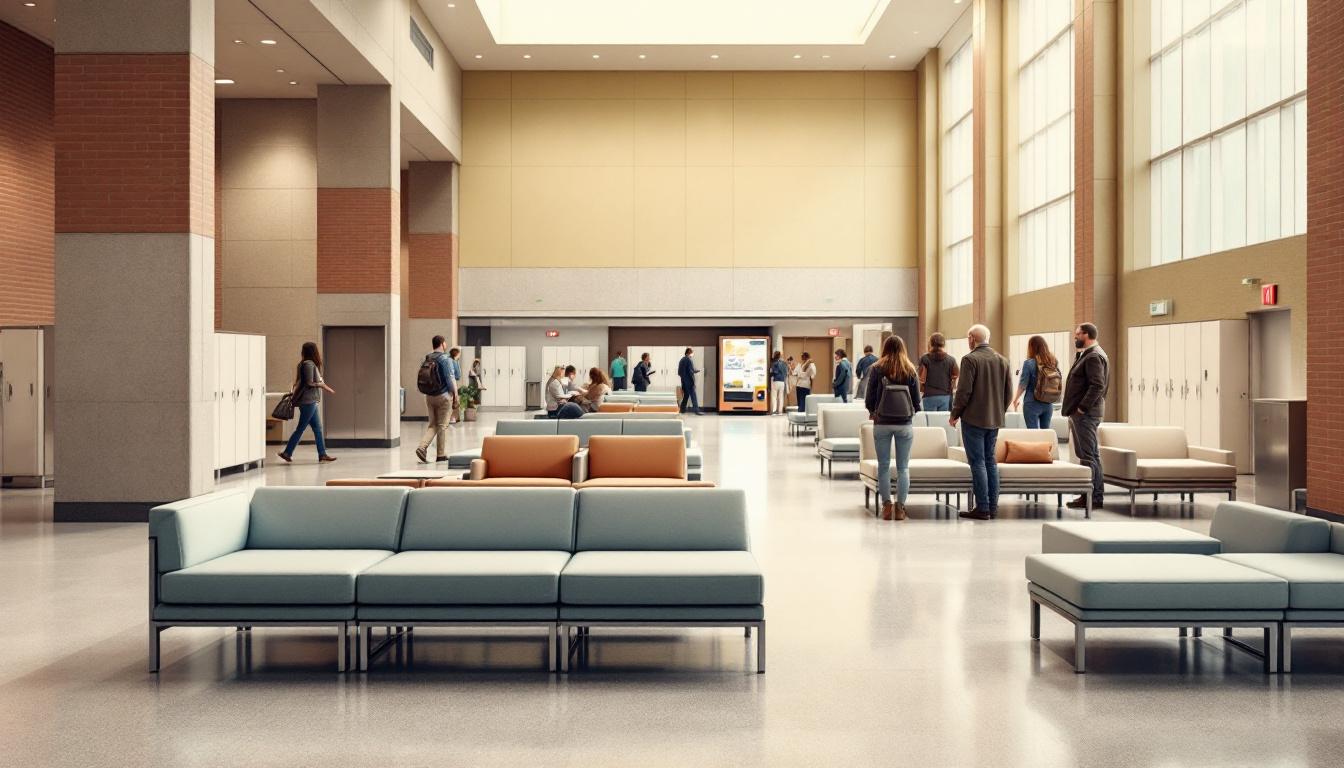
The housing units at Bainbridge Treatment Center feature dormitory-style accommodations where inmates navigate shared living spaces designed around therapeutic community principles. Inmates now follow structured daily schedules that typically begin with early morning wake-up calls, followed by personal hygiene routines and preparation for the day’s programming activities. The facility regularly maintains consistent meal times in communal dining areas, where inmates gather for breakfast, lunch, and dinner served at designated hours throughout the day.
Living conditions generally include shared sleeping quarters with basic furnishings, personal storage areas for approved belongings, and common areas where inmates can interact during designated social periods. Inmates typically adapt to dormitory-style housing by establishing routines around shared bathroom facilities, laundry schedules, and quiet hours that promote rest and reflection. The commissary system usually allows inmates to purchase approved personal items and snacks, while personal property regulations generally permit basic clothing, hygiene items, and limited personal effects.
Moreover, the facility provides structured programming that may include educational classes, therapeutic sessions, and vocational training opportunities designed to support rehabilitation goals. Recreation periods often include outdoor exercise time, indoor activities, and organized sports when weather and facility conditions permit. Whereas daily routines maintain structure, inmates typically have access to telephone privileges and visitation opportunities that allow them to maintain connections with family members and approved visitors, though these communications generally operate within established security protocols and scheduling guidelines that support both safety and family engagement.
Ready to Connect?
Start communicating with your loved one today
Search for an Inmate
